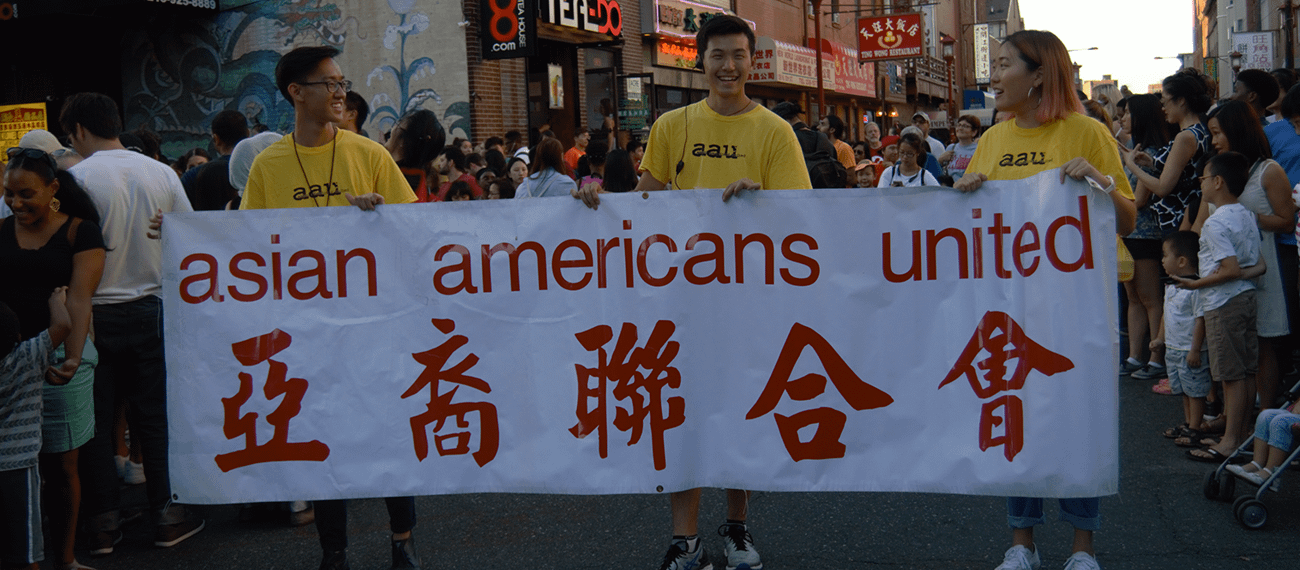Why We Need to Build Asian American Community
By Rachel Kim
There has recently been an increase in racially motivated incidents against Asians in the
United States, with much of the attention given to unprovoked attacks against Asian senior
citizens and the March 2021 shooting in Atlanta, Georgia that led to the deaths of six Asian
women. A total of 10,370 hate incidents against Asians in the United States were reported from
March 2020 to September 2021, and anti-Asian incidents increased by 361% from December
2020 in New York City alone. While there have been organized efforts to recognize and protect
Asian civil rights in the United States – most notably, the Stop Asian Hate movement – I believe
the basis for real progress in uplifting our communities and combating these hate crimes is in
Asians and Asian Americans identifying with and outwardly accepting the ‘Asian American’ label.
Only recently have Asians even begun to acknowledge a larger ‘Asian American’ identity.
The term ‘Asian American’ itself is relatively new, created in the 1960s by Professor Yuji Ichioka at
the University of California, Berkeley. There has long been a reluctance, especially among older
generations of Asian immigrants, to embrace this ‘Asian American’ label. Nazli Kibria, a sociology
professor at Boston University, noted that many Asians took an intra-Asian approach of “rely[ing]
instead on ‘homeland’ racial conceptions to make sense of themselves and their location.” That is
to say, Asians have typically been ‘nationality-first,’ rejecting any identity, including the ‘Asian
American’ label, that recognizes our Americanization. Instead of reconciling both our Asian and
American identities, we confine ourselves to our and/or our parents’ countries of origin, closing
ourselves off from building community with Asian racial groups that are not our own.
Closing ourselves off is damaging as it is through building a community that Asians gain
greater political influence. When Asians connect with our American identities, we are more likely
to engage in American political action and increase our political power, with a POLITICO/Morning
Consult poll in June 2021 connecting the 64% increase in Asian voter turnout in the 2020 general
election and electoral wins in Georgia and Arizona (through Asians acting as critical swing votes)
to a greater embrace of the ‘Asian American’ identification. When Asians increase our political
power, we increase our impact on legislation, including those that combat Asian hate crimes. It is
no coincidence that this uptick in Asian political participation coincided with President Joe Biden
signing anti-Asian hate crimes legislation in May 2021, creating a position within the Justice
Department to investigate these hate crimes and to improve state and local crime reporting.
Perhaps what the Stop Asian Hate movement has done most successfully is provide a
movement in which Asians of different origin groups can identify with and unite under a single
‘Asian American’ umbrella to collectively rally for social change. Especially when a total of
nineteen different Asian origin groups account for 97% of Asians in the United States, creating
solidarity is fundamental to building real power through collective action. If we are to combat
these Asian hate crimes, it will ultimately rely on our acceptance of each other within the Asian
community.
Rachel is currently an administrative intern, Brown Liaison at AAC. You can find her bio here.
Sources
Budiman, Abby, and Neil G. Ruiz. “Key Facts about Asian Americans, a Diverse and Growing
Population.” Pew Research Center, Pew Research Center, 16 Feb. 2022,
https://www.pewresearch.org/fact-tank/2021/04/29/key-facts-about-asian-americans.
Dugyala, Rishika. “What's Mobilizing AAPI Voters like Never Before.” POLITICO, POLITICO, 3 Oct.
2021, https://www.politico.com/newsletters/the-recast/2021/10/03/poll-asian-american-
pacific-islander-voters-politics-fear-494533.
Fabina, Jacob. “Despite Pandemic Challenges, 2020 Election Had Largest Increase in Voting
between Presidential Elections on Record.” United States Census Bureau, USA.gov, 8 Oct. 2021,
https://www.census.gov/library/stories/2021/04/record-high-turnout-in-2020-general-
election.html.
Kibria, Nazli. “The Contested Meanings of 'Asian American': Racial Dilemmas in the Contemporary
US.” Ethnic and Racial Studies, vol. 21, no. 5, 1998, pp. 939–958.,
https://doi.org/10.1080/014198798329739.
Niedzwiadek, Nick. “Biden Signs Anti-Asian Hate Crimes legislation.” POLITICO, POLITICO, 20
May 2021, https://www.politico.com/news/2021/05/20/biden-anti-asian-hate-crimes-bill-
489936.
Yam, Kimmy. “NYPD Reports 361 Percent Increase in Anti-Asian Hate Crimes since Last Year.”
NBCNews.com, NBCUniversal News Group, 10 Dec. 2021, https://www.nbcnews.com/news/asian-
america/nypd-reports-361-percent-increase-anti-asian-hate-crimes-last-year-rcna8427.
Yellow Horse, Aggie J., et al. Stop AAPI Hate, 2021, Stop AAPI Hate National Report,
https://stopaapihate.org/wp-content/uploads/2021/11/21-SAH-NationalReport2-v2.pdf.
Accessed 15 Feb. 2022.

